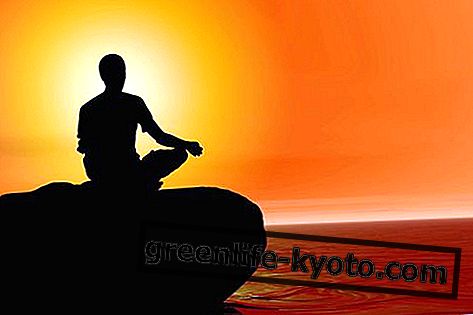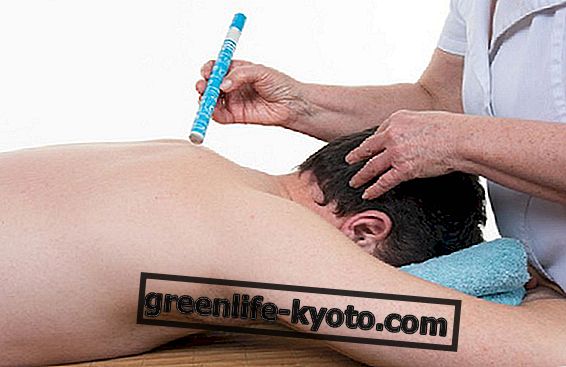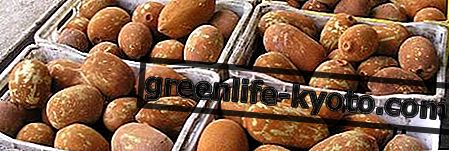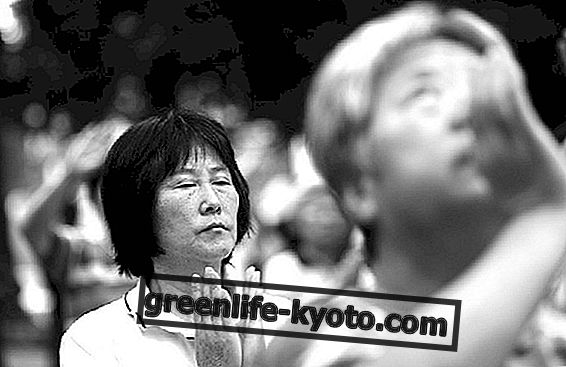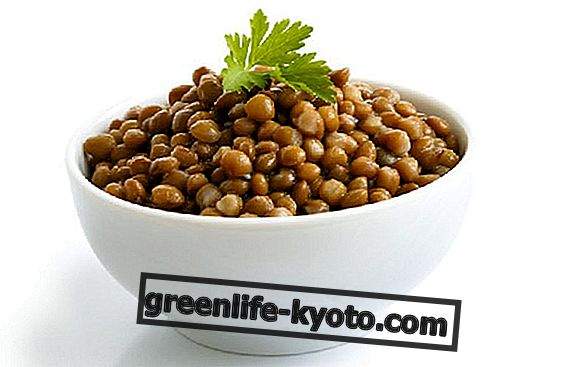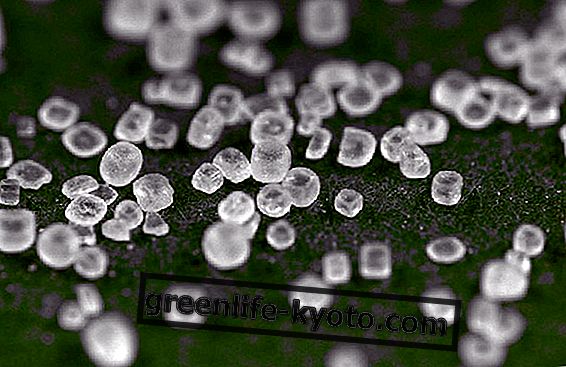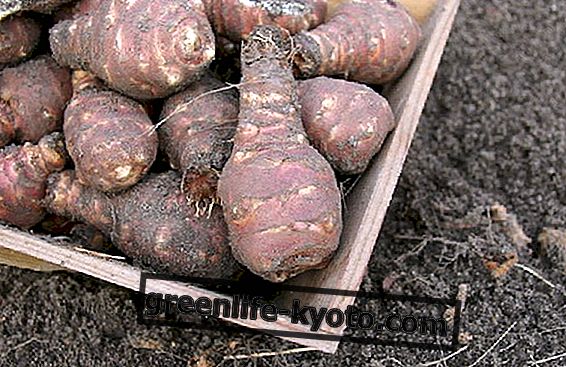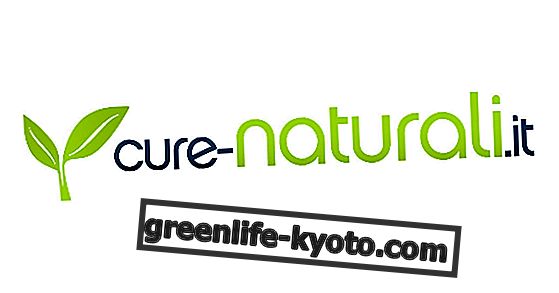Edited by Ilaria Porta, Iridology Naturopath
In traditional Chinese medicine the concept of diet has a totally different meaning from the western one. In Chinese dietetics, in fact, there is an accurate choice of foods according to their properties, actions and energies on the whole organism. Let's find out better.
>
>
>
>
>

Foods have healing and medicinal properties and the entire choice of food acts on the psycho-physical part of the individual and his constitution to strengthen weaknesses and keep the subject's vital energy in good condition. Nutrition must also be balanced in relation to the energy of the Yin and Yang foods.
Let's take an example to better understand: too much Yang energy, ie foods that are hot in nature and temperature, or too energetic, consume Yin. But even excessively Yin foods, of a cold or raw nature, will make it difficult to digest and transform the body's Yang.
Therefore, even in food balance is very important and nutrition can be curative. Chinese dietetics is one of the pillars of traditional Chinese medicine, along with pharmacology, acupuncture, massage and psychophysical techniques (Qi Gong and Taiji Quan).
Food according to traditional Chinese medicine
Taking a food, a plant or a medicinal substance causes an energy change in the body. Food therefore has a fundamental and unavoidable energy component that benefits the person who takes it.
In traditional Chinese medicine everything is taken care of, from plant to food, according to the YIN and Yang energies that regulate the whole. We will therefore find warming and refreshing foods, sweet and salty, acidic, bitter and salty that combined in the best way will have the purpose of nourishing and bringing energy to the physical and spiritual body .
Each food therefore brings energy IQ, which is very important for the human being because it keeps the vital energy of the subject healthy.
The diet must therefore be varied, seasonal, simple and natural . This means that the nature of the food consumed will give pure medicinal energy with a warming, deepening, refreshing, cooling effect depending on the constitution of the subject, or its predispositions to imbalances (diseases) .
All foods can increase IQ (energy), purify the blood and support the liver, spleen and heart, or all the organs suitable for digestion, which is considered fundamental for maintaining health status.
You can delve into all the natural remedies for difficult digestion

Yin and Yang foods
The flavors, from the most Yin to the most Yang are: spicy, sour, sweet, salty and bitter.
Foods plus YIN (acid):
- medicines, drugs and chemicals;
- chemical food (industrial drinks, dyes, preservatives, canned goods);
- liquor;
- sugar and drinks and sugary foods;
- alcohol;
- spices;
- coffee and tea;
- tropical fruit (mango, banana, pineapple, etc.);
- milk and yogurt;
- vegetable oils;
- fruit of warm climates (mandarins, oranges, lemons, etc.);
- solanaceae (tomatoes, aubergines, peppers, potatoes);
- fruit of temperate climates (watermelons, peaches, raspberries, blueberries, etc.);
- fresh cheeses without salt and seasoned cheeses;
- tofu;
- oilseeds;
- vegetables such as salad, spinach, turnip greens;
- vegetables such as cabbage, pumpkin, cauliflower, broccoli;
- roots (carrots, onions, turnips, radishes, daikon, burdock),
- seaweed;
- legumes;
- corn, oats, barley, wheat, whole wheat (the most balanced food), m eal and buckwheat;
- shellfish and fish,
- white meat, red meat and cold cuts;
- eggs;
- tamari ;
- miso, soy sauce and salt.
More YANG foods (alkaline)
Foods can be made more yang by increasing the cooking time or the use of other factors such as heat .
We see the heat sources (from the most yang to the most yin): wood, coal, methane gas, plate and electric oven, microwave (the latter to be avoided, as it is unhealthy).
It is also possible to attribute a characteristic more or less yin or yang to the food itself based on the type of cooking with which it is prepared: c rudo, m arinatura - under salt, s cottatura, steam, c ottura in acqua, c ottura in padella with little oil, n ishime (the vegetables cook in layers with the addition of a little water, tamari, slowly in a pot with a lid), n itukè ( yanghizza vegetables in oil). Salt is added and the lid is closed until cooked (pressurized), t empura (deep-frying), baked.
The yin / yang effect of cooking is also a function of :
- Fire
- Salt (miso, shoyu, tamari, umeboshi)
- Time
- Pressure
Indeed:
- + fire = drier effect
- - fire = more relaxing effect
- + salt = more reinforcing effect
- - salt = more moisturizing effect
- + time = more heating effect
- - time = more refreshing effect
- + pressure = greater contraction
- - pressure = more dispersed energy
When to eat according to Chinese dietetics
According to traditional Chinese medicine it is important to eat during the day. At night, on the other hand, when the energy of the environment that surrounds us decreases and consequently also that of our body falls, digestion will be more difficult.
The quantity, quality and energy variety of food are fundamental: in the same meal, in fact, all the flavors and colors should be present.
What to eat and what to eliminate according to Chinese dietetics
The foods to be eliminated are certainly all the refined foods and every type of sausage and meat, cow's milk and dairy products in general.
The foods to be preferred are all whole grains (brown rice, millet, spelled, buckwheat), all vegetables and fruit in minimum quantities since they are very fermentative and too sugary.
Excellent will be the choice of all the legumes that will serve as vegetable proteins and obviously soy also in the form of tofu and tempeh. Algae are also important and all the seeds (sesame, pumpkin, flax).
Drink fresh and natural water, bancha and kukicha tea, the famous green tea, powerful antioxidant; favor seasonings with extra virgin olive oil, sesame seed oil, sunflower oil and flaxseed oil, acidulated humeboshi, rice vinegar, gomasio with or without algae, soy sauce and tamari and, last but not least, all spices.
Even cooking and cutting food are very important to take more energy from each food, but for this specific courses must be followed.
The thought
The most important rule is certainly to eat with the soul in peace, without bad thoughts or arguments, remembering that food intake is not only physical but also energetic. An upset mood will cause stagnation of Qi, blood and even food, affecting the appetite, digestion and assimilation of food. So no anger, resentment or negative thoughts while eating!
Treat yourself thanks to food: Tibetan dietetics
Other articles on Chinese dietetics:
> Chinese cuisine: advice and how to orient yourself

